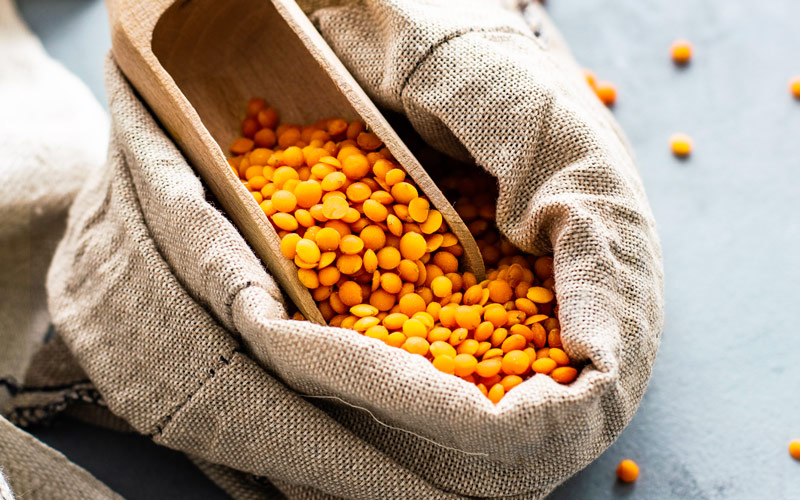Will we all be watching Doha in December?

A very Happy New Year to you all from myself, Mark Dudley and all at Coriolis.
2022 brings us the FIFA World Cup finals in Qatar, that hotbed of soccer commencing in November with a final at 3pm on the 18th December. Can the Earl of Tees-side steer England to one step better than the narrow defeats to Croatia and Italy or will it be something more tame?
Whatever, for the British food system in the run into Christmas ’22 there is not just the “normal“ build up of pigs-in-blankets and Brussels sprouts to face, but also copious potential pizzas, snacks and savouries, plus booze no doubt, as the country settles around the fire to watch Gareth’s merry men seek to bring extra-stellar seasonal joy.
Happily, January 2022 is a much brighter time than a year past, when the weather was grim, mass vaccination had not taken off, lockdown was in full motion – necessarily it should be said – and fatalities were rocketing. It really was a dark time, one when the national mood was transparently low. Public policy has been damn difficult through the pandemic and it has brought out the best and the worst of the British. The best in amazing public service, scientific genius and love for our families and communities. The worst in those who think the pandemic controls do not relate to them, the anti-vaxxers and those who have taken the opportunity to malinger – the ‘can’t do, won’t do’ folks.
And so for the British food system, as the New Year starts Coronavirus remains up front and central still albeit with a lot of learning in tow and so a better position to face operational challenges. Omicron is clearly one such problem, which is helping – through absenteeism – to keep the labour process at the fore of the food industry’s mind; even though most folks do not know that they have it, and those that do are not very ill. How on earth did we live through the travails of the common cold? As an aside, how can British produced lateral flows tests be accepted by EU states but not the UK? This is Monty Python Brexit!
That labour process has, with several key commodities like energy and freight, meant that the food sector faces ’22 with considerable cost headwinds. Whilst inflation can be expected to ease back through the New Year, a complacent Bank of England has underestimated its substance and probable longevity. So, it’s not inconceivable to believe that inflation could exceed 6% in the UK by Spring and that the central bank may have to raise interest rates above 1.0% in order to prevent recurring and spiralling wage-cost inflation.
Technology will play a part in remedying a prevailing British disease of low labour productivity – albeit low because labour as a factor of production has until recently been so abundant. However, such solutions are not quick, cheap or easy to implement and so the much vaunted revolution in the labour process is something for the middle and second half of this decade; not now. Hence, labour will remain a challenge for the food industry in ’22 and hopefully a complacent Government will listen to genuine industry concerns where there are pinch points – there has been disgraceful behaviour on this front by the likes of Johnson, Patel and Eustace to date.
Food price inflation in the UK, which was subdued prior to Christmas 2021, albeit rising steadily off a low base since September, is expected to build more notably in early ’22. How such inflation influences British shopper behaviour remains to be seen. Albeit for the lowest income households, food and energy prices combined (the latter could be quite enormous from spring if Government action does not prevail) can be expected to be very regressive.
As such, value as a competitive mechanism in the British food industry, even with all of the transparent inflation coming through, is likely to remain at the forefront of many shopper and supermarket chiefs’ minds. Indeed, how the trading relationship between the likes of Tesco in particular and Aldi and Lidl in the UK pans out will be particularly important to the evolution of the trading environment in the New Year. In this respect, we’ll also be interested to see how promotions, which have been notably lower over recent years, evolve in the British market.
Whilst all this is so, it is important for policymakers and the key distributors of food in the UK – retail and foodservice – to keep in mind that as a proportion of household income, in this country, we spend a low amount on food. Frankly, I struggle to see the supply chains accommodating all of the input price inflation currently in place, which means either prices are expected to rise, or distributors’ margins are going to fall. In this respect, whilst I expect a competitive environment to persist – and for the German retailers to remain non-profit maximisers – inflation and stable margins are also expected to come through.
So, bringing this altogether, we start ’22 with the pandemic proving frustrating for most and sadly still fatal for some. More broadly, the world continues to pose challenges with worrying developments – China/Taiwan and Russia/Ukraine perhaps the most potent – whilst ahead there are important elections in France and Northern Ireland in particular. Each and all of these global factors could influence our political economy and so the conditions with which the UK food system operates; the start of ’22 also sees the introduction of the next phase of Brexit procedures.
Elections in England in the spring could also be a critical moment in the chaotic Prime Ministership of Boris Johnson, who we all know lacks detail but has a guttural feel and capability to win elections. An informed electorate is more dangerous for Johnson though and his stupid defence of Patterson, and incapacity to square up on Downing Street gatherings – most of which clearly involved civil servants and special advisors it should be said – could mean that ‘men in grey suits’ do to he what they did to Thatcher and Major.
Within and between these macro-factors, the UK seems more polarised than ever but at least folks of all creeds, colours and persuasions have to eat. Therefore the defensiveness of the food sector in financial markets which are exposed to potential monetary policy tightening could be a notable stock market positive through the year. To achieve such status – though margins and free cash generation will need to stay firm in the face of the aforementioned inflationary environment and do so for several months – food inflation will be a topical matter, possibly easing as the year ends.
Then, hopefully with Coronavirus weaker still, all eyes can return to the Earl of Tees-side, Gareth and his merry men, as they potentially bring merriment and the Joules Rimet trophy “back home” to a country in a healthier state. A country which is not preoccupied by the fragility of the NHS, with an economy that can perhaps progress less encumbered by disease, and with a Government that is perhaps more focused upon erecting supply side encouragement than hurdles. (I should state that as a Northern Irishman the unlikely prospect of England winning the World Cup is a matter of some dread…!)
Coriolis is a source of supply side encouragement in the private arena, a team based in operations that is particularly relevant at times when businesses need to remove blocks, ease pinch points and so be more productive. Do be in touch with Mark Dudley and the guys if they can help.
All the best.
Clive
Dr Clive Black
Senior Advisor
Coriolis Consulting
January 2022








